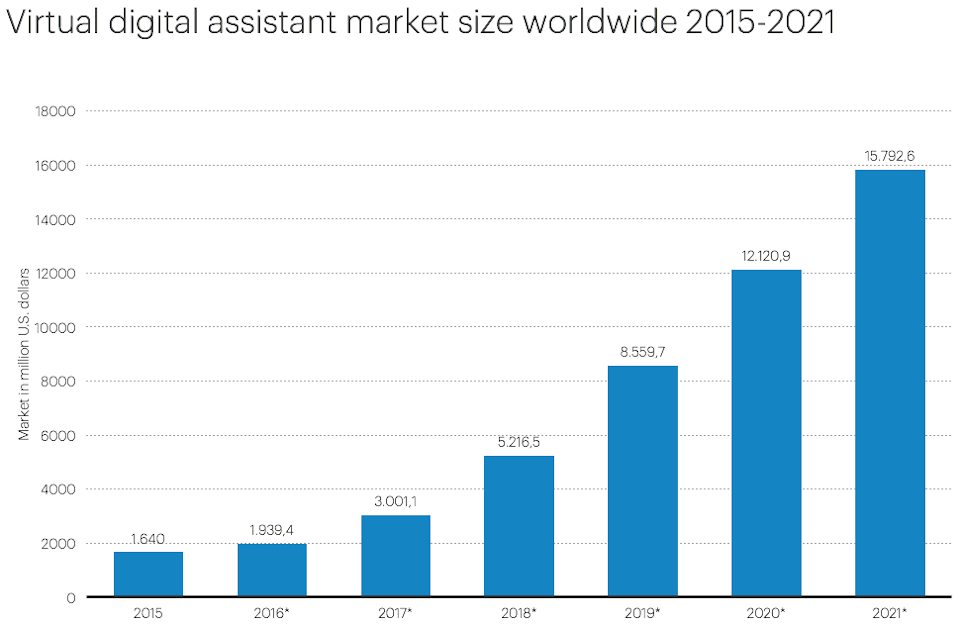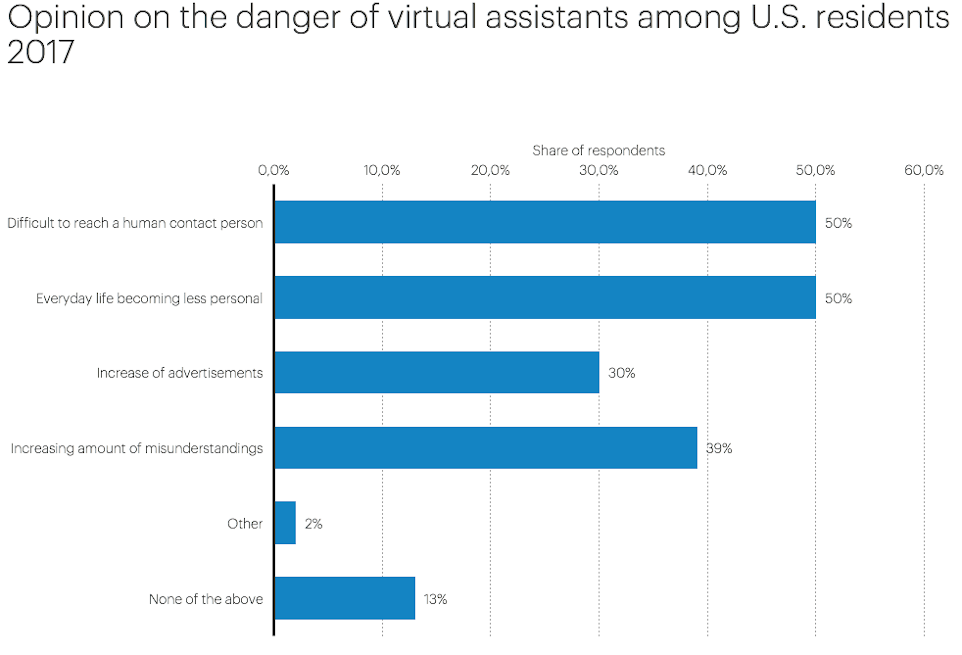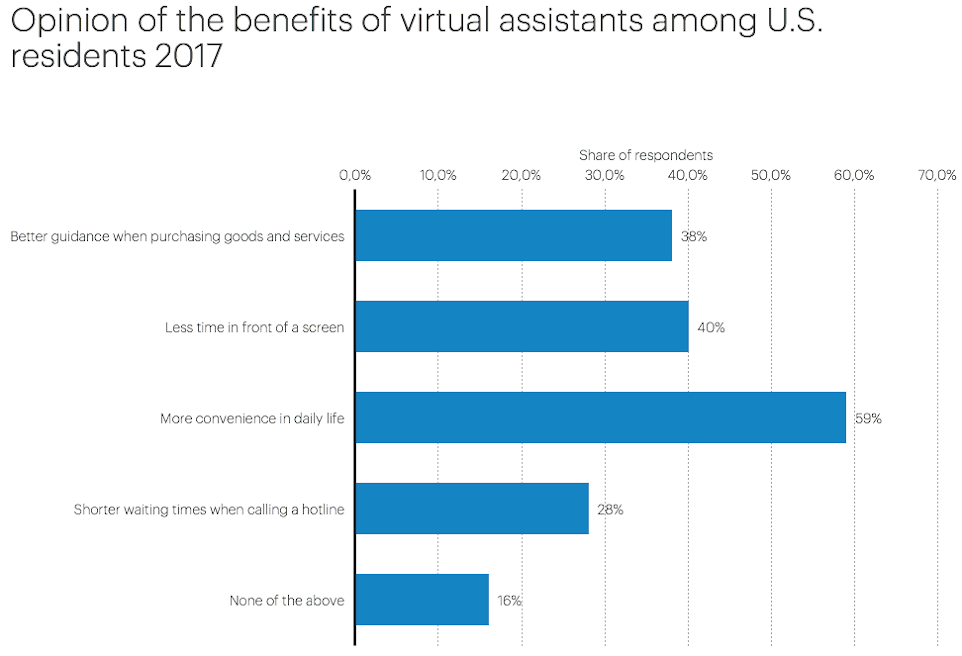Article
Global trends for the virtual assistant market

The Google assistant is the most used in the United States, but Amazon’s Alexa has been the most popular in homes
One of the artificial intelligence segments with the strongest projected growth in the short and medium term is that of virtual digital assistants.
The advances made in recent years in the fields of natural language processing, conversation interfaces, automation, and machine learning and deep learning processes have enabled virtual assistants to become increasingly intelligent and useful.
Let’s review the key trends, primarily of the home segment.
These applications are made available by large technology firms such as Apple, Google, and Amazon, and then offered to users in the form of assistants that operate as intermediaries between consumers, companies, and their services. The interactions can take place via mobile devices, websites, applications, home assistants or wearables.
On a global level, the market size is expected to reach $5.216 billion by 2018 and then triple by 2021:

What are the leading manufacturers doing?
Although the Google assistant is the most used in the United States because it comes with the company’s products (including Android), followed by Siri (Apple) and Cortana (Microsoft), Amazon’s Alexa has dominated the home segment.

In turn, Siri has been pushed into the background despite being the pioneer for mobile devices, while the Amazon assistant, which was launched in 2014, works with proprietary devices (Echo, Fire TV) as well as third-party devices (Lenovo, Jam, LG, Huawei, and HTC, among others, in addition to Ford, BMW, Toyota, and Lexus vehicles).
In the race to dominate the market, Amazon wants Alexa to hold conversations that last up to 20 minutes: “The aim is to go beyond simple assistance and create a tool that offers almost-human companionship, with opinions and logical responses.”
However, Google is the company that earned the most attention at the #CES2018. This is partly due to the company’s plan to make its assistant available to other manufacturers so they may take advantage of its voice recognition technology. According to analysts, this technology has been trained with YouTube content and recognizes commands with greater ease, even if they are spoken by a non-native person or are pronounced incorrectly. Google’s strategy to compete with Amazon is also undergoing an ambitious global expansion.
Threats perceived by users
A fundamental aspect to take into consideration is privacy. Approximately 50% of users in the United States are worried that virtual assistants will make life less personal. Alexa and Assistant allow stored audio clips to be deleted, but only Google offers a configuration option so they are not recorded from the onset.

Other risks detected by users are the difficulty in contacting other humans, increased advertising, and misunderstandings. The best example of a misunderstanding is a minor who was able to purchase a toy using Amazon Echo without their parents being present. When the news appeared on TV and the anchor repeated the same words the child had stated, other devices also processed the purchase.
Advantages perceived by users
The possibilities of future applications in health, business, smart home controls, and personal companionship are endless
Firstly, they make day-to-day tasks more convenient, help users spend less time in front of a screen, provide assistance when purchasing products and services, and reduce wait times when calling a customer service line.

These advantages are closely tied to the user’s personal experience and the functionality grows on a monthly basis. In addition to electronic commerce, useful information (traffic, weather), and customer service, the possibilities of future applications in health, business, smart home controls (energy, security), and personal companionship are endless, resulting in the exponential growth of turnover and usage.
Sources: Statista, Socratic Technologies, MindMeld, and Tractica.
